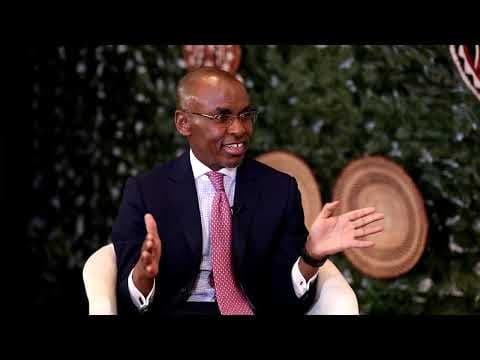On November 7, 2024, Safaricom PLC (SCOM) released its financial results for the half-year ending September 30, 2024 (HY25), revealing a 17.7% decline in net profits, which dropped to KSh 28.1 billion from KSh 34.1 billion in the same period the previous year.
- •East Africa’s largest listed company attributed this decline to the drastic depreciation of the Ethiopian Birr (ETB) by 106%, a move that resulted in significant currency translation losses and adverse impacts on its earnings.
- •Safaricom, which owns a majority stake of 51.7% in Safaricom Ethiopia, is required to consolidate 100% of the earnings from its Ethiopian joint venture, as per International Financial Reporting Standards (IFRS).
- •The Ethiopian Central Bank’s decision to implement a floating exchange rate regime led to the sharp devaluation of the Birr, with the value of the ETB plummeting from ETB 57.7 to ETB 118.99 per US dollar.
This means that despite the majority of the earnings being attributable to other shareholders in Safaricom Ethiopia, the parent company had to reflect these in its consolidated financials.
This 106% depreciation had a material impact on Safaricom Group’s financial performance, as the entire income and balance sheet of Safaricom Ethiopia had to be converted into Kenyan Shillings (KES), the parent company’s functional currency. The resulting forex losses had a direct bearing on the Group’s reported revenue and profits for the earnings period.
Revenue Growth in Ethiopia
Despite the negative impact of the Birr’s devaluation, Safaricom’s service revenues grew by 12.9%, reaching KSh 177.5 billion for the period under review.
Mobile data remains the primary revenue driver for Safaricom Ethiopia, contributing 76.9% of its total service revenue. Revenues from mobile data increased from KSh 1.3 billion in HY24 to KSh 2 billion in HY25 while voice revenue contributed a smaller portion to the subsidiary’s income at KSh 319.4 million.
Despite this growth in service revenue, the FX impact was so significant that it overshadowed the positive performance in underlying operational metrics.
According to analysts at Sterling Capital, excluding the adverse effects of the Birr devaluation, the company’s underlying income grew by 21.7%, amounting to KSh 36.7 billion, compared to KSh 30.2 billion in HY24. However, the inclusion of the Birr devaluation and its hyperinflationary effect significantly reduced the final profit figures.
“We also note that management (Safaricom) has been taking steps to reduce the impact by localizing (getting local suppliers) their inputs, however, 85% of capex and 50% of Opex are still in USD leaving them susceptible to further shocks.” reads a note from Sterling Capital to investors.
“Management has stated that it aims to reduce foreign currency exposure on capex and opex to 50% and 60% respectively which we assert will be quite difficult given the absence of local producers of many of their inputs.”
The FX Impact
The total impact from the Birr’s depreciation amounted to KSh 33.8 billion, which significantly reduced the net income attributable to Safaricom Group. The adjusted net income prior to the currency devaluation and hyperinflation effects was estimated to be KSh 20.8 billion, while the net income after accounting for these factors was a considerably higher KSh 54.7 billion.
The forex adjustments included revisions to both revenue and expense lines, which made the Group’s performance appear far worse than it actually was in operational terms according to the analyst report.
Ethiopia Strategy
Of course the devaluation of the Birr presents a major challenge to Safaricom, as it exposes the vulnerabilities in its regional expansion strategy, especially in the fast-growing but volatile Ethiopian market. Safaricom has committed substantial resources to its Ethiopian venture, and while the company continues to report solid growth in its operational metrics, the currency risk has become an undeniable factor in its profitability.
“Of positive note is that the telecom has been allowed to integrate its systems with the central government’s fuel platform, alongside Ethiotel’s Telebirr, which will enable M-Pesa to be used as a means of paying for fuel. This integration should help M-Pesa become further entrenched in the region and ideally lead to growing use cases for the population.” – Sterling Capital
Analysts suggest that hedging strategies, operational adjustments, and further localization of debt may be necessary to manage the significant foreign exchange exposure Safaricom Ethiopia carries. The company has also localized the US dollar-denominated debt in the subsidiary, a move that may help reduce future currency translation losses.




